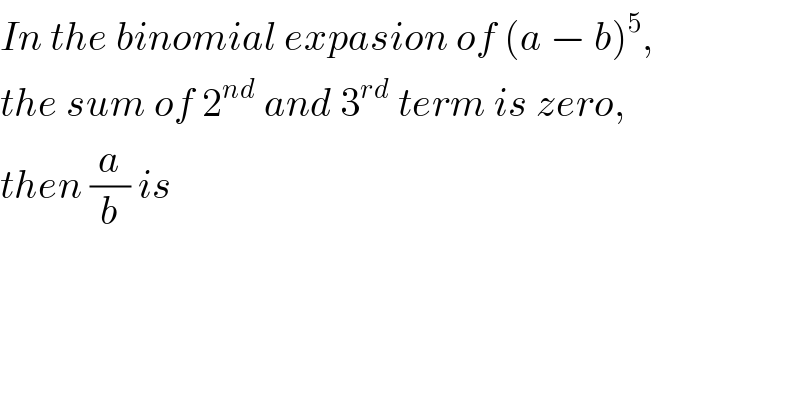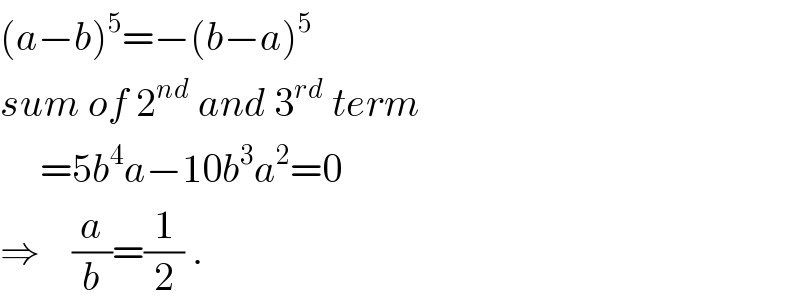
Question Number 22612 by Tinkutara last updated on 21/Oct/17

$${In}\:{the}\:{binomial}\:{expasion}\:{of}\:\left({a}\:−\:{b}\right)^{\mathrm{5}} , \\ $$$${the}\:{sum}\:{of}\:\mathrm{2}^{{nd}} \:{and}\:\mathrm{3}^{{rd}} \:{term}\:{is}\:{zero}, \\ $$$${then}\:\frac{{a}}{{b}}\:{is} \\ $$
Answered by ajfour last updated on 21/Oct/17

$$\Rightarrow\:−\mathrm{5}{a}^{\mathrm{4}} {b}+\mathrm{10}{a}^{\mathrm{3}} {b}^{\mathrm{2}} =\mathrm{0} \\ $$$$\Rightarrow\:\frac{{a}}{{b}}=\mathrm{2}\:. \\ $$
Commented by Tinkutara last updated on 21/Oct/17

$${But}\:{in}\:{book}\:{answer}\:{given}\:{is}\:\frac{\mathrm{1}}{\mathrm{2}}.\:{Is}\:{this} \\ $$$${wrong}? \\ $$
Answered by ajfour last updated on 21/Oct/17

$$\left({a}−{b}\right)^{\mathrm{5}} =−\left({b}−{a}\right)^{\mathrm{5}} \\ $$$${sum}\:{of}\:\mathrm{2}^{{nd}} \:{and}\:\mathrm{3}^{{rd}} \:{term} \\ $$$$\:\:\:\:\:=\mathrm{5}{b}^{\mathrm{4}} {a}−\mathrm{10}{b}^{\mathrm{3}} {a}^{\mathrm{2}} =\mathrm{0} \\ $$$$\Rightarrow\:\:\:\:\frac{{a}}{{b}}=\frac{\mathrm{1}}{\mathrm{2}}\:. \\ $$
